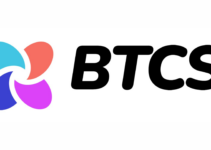In recent news, Tether, a leading stablecoin issuer, has frozen a significant amount of funds in 32 addresses. These actions were carried out due to suspicions linking the funds to illicit activities in Israel and Ukraine, with the total amount reaching a staggering $870,000.
On October 16, Tether confirmed its collaboration with the Israeli crime control body, NBCTF, targeting the misuse of cryptocurrency in financing unfavorable actions. Till now, their global efforts have been impressive with collaborations spanning across 31 countries, and a whopping $835 million in assets frozen.
So, what does it mean when we say an address is “frozen”? In layman’s terms, it simply means that the wallet’s ability to send USDT (Tether) is restricted. Until the freeze is lifted, the wallet holder cannot shift their funds anywhere.
Stepping into the limelight, Tether’s newly minted CEO, Paolo Ardoino, shed light on some misconceptions. He mentioned, “While many consider cryptocurrency as a cloak of anonymity, the reality is starkly different. Each cryptocurrency transaction is like a breadcrumb trail, easily traceable, making it a rather poor choice for criminals.”
Ardoino’s statement emphasizes the security and innovative capabilities that blockchain technologies can introduce to the financial world. He stresses the idea that every transaction is etched into the blockchain, making it accessible for tracking. Hence, those misusing cryptocurrencies for illicit purposes are merely setting themselves up for exposure.
Tether’s recent actions not only showcase its commitment to its user base but also highlight its dedication to preventing fraud, money laundering, and ensuring user trust remains intact.
Tether and the Quest for a Transparent Crypto World
Tether’s strength lies in its ability to monitor the flow of USDT, even when miscreants attempt to move funds surreptitiously. With proper legal channels, Tether can freeze USDT, thereby securing users’ assets.
This isn’t Tether’s first rodeo in championing transparency. Flashback to last year, when Binance Smart Chain faced a security breach leading to a loss of $570 million. Tether was quick on its feet, blacklisting the suspicious address promptly, ensuring no further harm was done.
Further, in another instance, Tether froze a substantial $46 million in USDT upon a legal request. This action was taken concerning an FTX wallet during an unfortunate exchange downturn.
As of the previous year’s end, Tether’s cooperative endeavors with global law enforcement have contributed immensely. Their joint efforts have resulted in freezing assets north of $360 million, with $101 million prepped for reissue.
The aim? To protect integral financial pathways from malicious entities and bolster international law enforcement in combatting threats, both digital and tangible.
Reiterating Tether’s pledge, Ardoino shared, “Our unwavering commitment is to champion the responsible use of blockchain technology. As we march forward, we look towards deepening our ties with law enforcement agencies worldwide, fortifying global security and upholding financial integrity.”
In sum, Tether’s proactive steps, hand in hand with law enforcement units globally, spotlight the industry’s potential to fend off criminal misuse. It’s a testament to how blockchain’s transparent nature can act as a solid barrier against untoward activities.



